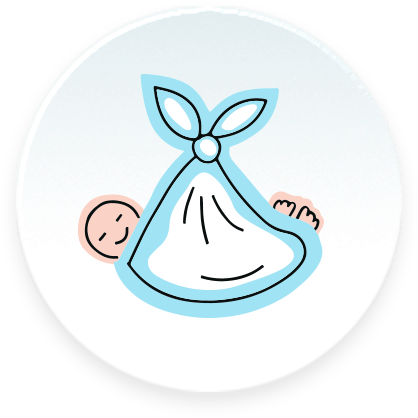Meet the Willoughby Family
“What I thought was going to be a routine visit to the GP ended up with me rushing him to the emergency department at Adelaide’s Women’s and Children’s Hospital. Call it mother’s intuition, but I knew something just wasn’t right. After expressing my concerns, our GP decided to do a simple urine test on Charlie. I remember looking at the stick and seeing it immediately turn dark brown. I don’t recall much about what he said, my mind began to race after I heard the words “type 1 diabetes” and “emergency”.
On arrival, Charlie was taken straight through for more testing. His blood glucose level was checked and it’s a number I’ll never forget: it was 46.7 (the optimal range should be 4-8.)
There was no history of it in our family and our healthy son had never been sick.”

Charlie (on the right), his mum and twin brothers around the time of his diagnosis
“Like many others, when Charlie was diagnosed, we knew nothing about type 1 diabetes. We now know that type 1 diabetes is an autoimmune disease where the immune system stops the pancreas from producing insulin. There is currently no cure.
My message would be to be aware of the signs and symptoms of type 1 diabetes, and trust your intuition. Looking back now, all the symptoms were there but I guess we didn’t realise anything was seriously wrong. We put some of Charlie’s symptoms down to the fact that there were two new little people in the house causing a change in his routine.
Charlie had been toilet trained, but then he started to have accidents – every now and then at first, to every week, to every night. His thirst was uncontrollable, which we now know is one of the classic symptoms of T1– it was his little body’s way of trying to flush the sugar out from his system. He was also constantly hungry and eating, but not putting on weight.
It was getting harder and harder to wake him in the morning. He just seemed to be tired and lethargic all the time. His behaviour became erratic. We just put it down to a ‘stage’ he must be going through.”

The Willoughby Family ready for the 2016 JDRF One Walk in Adelaide
“Type 1 diabetes is like a roller coaster ride and no two days are the same. It has had a huge impact on our family, but it’s made us even more proud of our ‘Super Charlie’ and the way he handles his challenges on a day-to-day basis.
We have adapted to our ‘new way’ of life: pricking Charlie’s finger to test blood glucose levels throughout the day and night; before and after meals. The hardest thing was learning to give our son insulin injections to keep him alive.
We were so nervous bringing Charlie home from hospital, but we adapted to our new routine: reading food labels, counting carbohydrates, weighing his food, planning ahead for everything… it just became the norm.
At 3.5 years of age, he was taking this all in his stride. We were in awe of how well he accepted his new way of life and was happy to just get on with things. The support we received from the Women’s and Children’s Hospital was nothing short of fabulous. Charlie’s endocrinology team became our rock. They were so understanding and supportive when things became overwhelming.
Between getting up to feed the twins, and setting our alarms every few hours to test Charlie’s blood glucose levels, sleep deprivation was a real issue. Charlie at such a young age remained so switched on. In our sleep-deprived state, he’d remind us: “Mummy, Daddy, you forgot to give me insulin.”
Charlie says when he grows up, he wants to be a scientist who will find the cure for type 1 diabetes and “make all the children better”. He plans to do this on his days off, when he’s not being an excavator driver!”

Charlie and his super spidey pump
“I heard about the ENDIA Study when I was pregnant with Poppy, and I didn’t think twice about signing up – I would do anything to help find a cause of type 1 diabetes, and ways to prevent it happening to other children. ENDIA is a study involving follow-up visits with a nurse. The staff are experienced, friendly and really flexible; sometimes they’ll do home visits when it’s just too hard to mobilise four young children! It’s reassuring having someone monitor Poppy and provide feedback on results you don’t routinely get, like vitamin D levels; including the ‘all clear’ that she isn’t showing signs of islet autoimmunity (the precursor to developing T1).”

Super Charlie!

